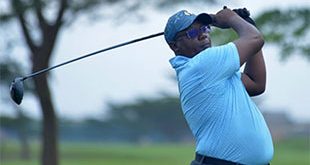IAAF extends Russian ban, leaves Olympics door ajar
The IAAF voted unanimously Friday to extend the ban on the doping-tainted Russian federation, but left the door ajar for some track and field stars to compete at the Rio Olympics as neutrals.
Despite a last-ditch campaign to overthrow the ban led by Russian President Vladimir Putin, the IAAF Council, headed by Sebastian Coe, was unanimous in its decision to uphold the suspension.
But Coe said Russian athletes based outside of the Russian system “could potentially return to international competition as neutrals once their cases are reviewed by our doping review board”.
“Of course it’s unfair,” Putin said of the decision. “I’m assuming that we’ll have a discussion with our colleagues in the World Anti-Doping Agency and I hope a reaction from the International Olympic Committee.”
The Council decision was widely welcomed elsewhere, however, United States Olympic Committee chief executive Scott Blackmun saying the move would send a “much-needed message”.
United States Track and Field (USATF) said: “It is the only proper course of action given the compelling and powerful evidence presented to Council.”
Svein Arne Hansen, president of European Athletics and a member of the IAAF Council, added: “Our unanimous decision, taken in an atmosphere of extreme pressure, is the clearest possible signal of the IAAF’s commitment to the values of our sport.”
The International Association of Athletics Federations (IAAF) imposed the initial ban on Russia in November over state-sponsored doping and mass corruption, and first extended it in March on the grounds that the criteria set for reinclusion had not been met.
But as Russian pole vault star Yelena Isinbayeva reacted immediately by saying she would challenge in court the IAAF decision, an olive branch was proferred.
“If there are individual athletes who can clearly and convincingly show that they are not tainted by the Russian system because they have been outside the country, and subject to other, strong anti-doping systems, including effective drug testing, then there should be a process through which they can apply for permission to compete in international competitions, not for Russia, but as a neutral athlete,” Coe said.
Coe insisted that the IOC, which meets in Lausanne on June 21, would not have the final say on eligibility of athletes in light of the August 5-21 Rio Olympics.
“The eligibility of athletes to compete internationally sits and lies with the IAAF,” said Coe. “That’s what the IOC would recognise.”
 The Independent Uganda: You get the Truth we Pay the Price
The Independent Uganda: You get the Truth we Pay the Price



